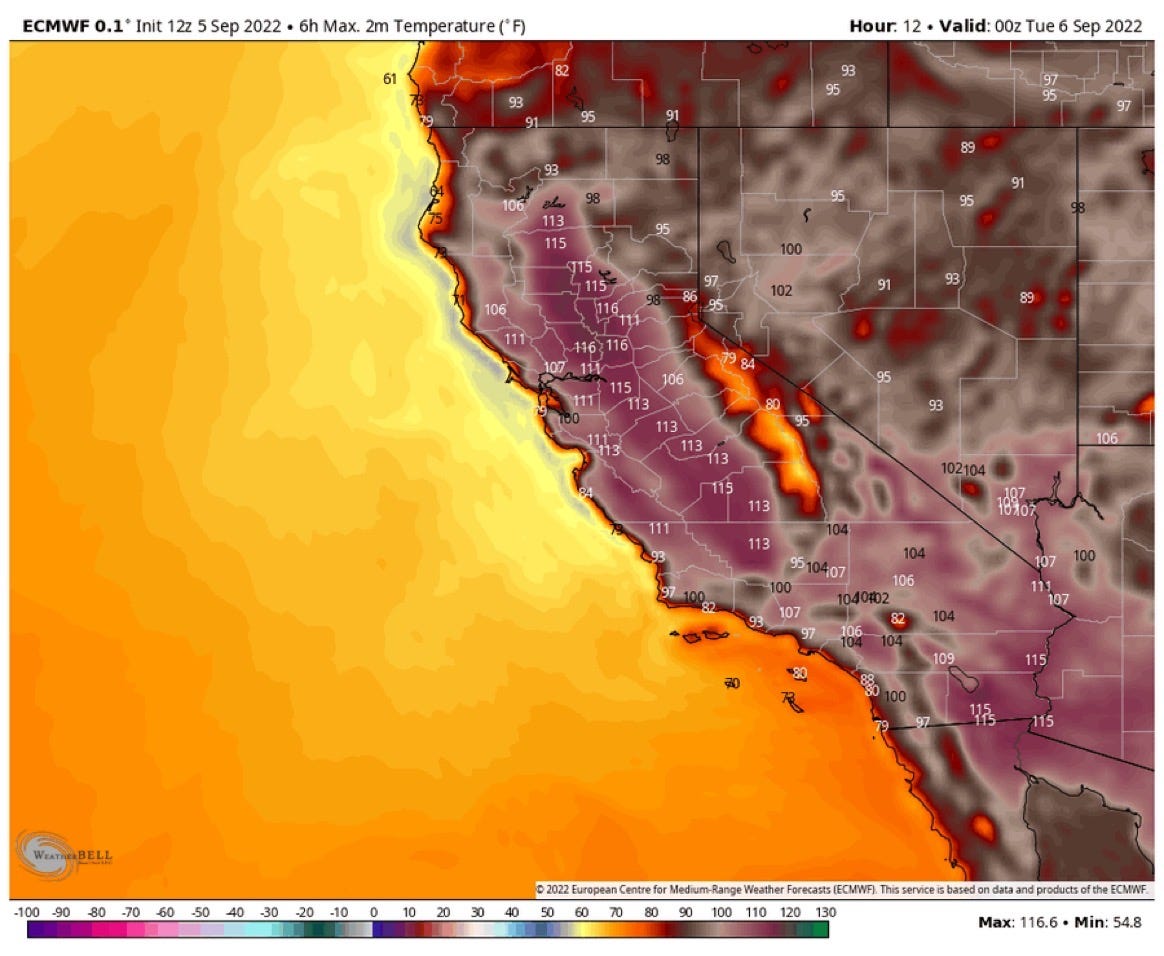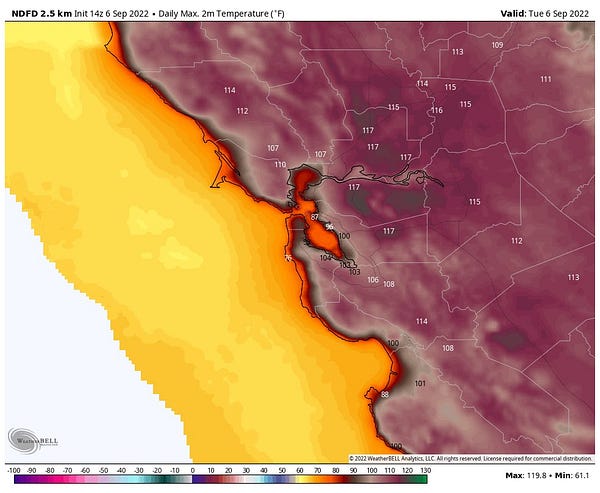Record breaking extreme weather: I believe we can do better
California, Pakistan, East Africa: extreme weather gets more extreme
While I type this, high-temperature records fall across California, where an extreme heatwave made the state issue a power grid emergency. More news will surely follow during the day.
After half a century of warnings from scientists that there are limits to growth, we have reached the point where we personally experience the dire consequences of our leaders’ lack of leadership. Open any news source, and you will see evidence of our economic and governance models falling short of saving the planet.
In Pakistan, the summer heat usually starts in May, but this year, it began in March, and heat records were broken when temperatures reached above 50℃ before the monsoon rains began. Then, the horrendous flooding started, putting a third of Pakistan under water, an area as big as England and Wales combined. The economic cost of the losses could be 10 billion dollars, and it could even be more.
The human toll is estimated at 1.300 lives lost but is likely to rise. The number of people in the flooded areas that require humanitarian support is estimated by the World Health Organization to be a staggering 6.4 million people. But, unfortunately, that is not the whole reality yet, because more rain is expected to force more people from their homes and worsen the situation for all displaced people.
Extreme downpours, combined with melting glaciers in the intense heat, caused the Pakistan floods, which may have been aggravated by several other factors. Still, the fingerprints of climate change are clear to see on events all over the planet. At Dallas Forth Worth Airport, more than 9 inches fell over 24 hours in late August. Meanwhile, Seoul, South Korea, experienced its heaviest torrential rain in a century. There are so many more cases of extreme weather this year that the news stations have trouble keeping up with all developments.
A question: are you aware that more than 20 million people are facing a dire hunger crisis across the Horn of Africa? Four consecutive rainy seasons have failed since late 2020, a climatic event not seen in at least 40 years. Somalia has reached the tipping point; hundreds of thousands of people are at immediate risk. Starvation and death are likely already occurring. Did your newspaper or news channel inform you about this tragedy?
And another question for you: did you experience extreme weather this year? And was that more frequent, long-lasting, or extreme than five or ten years ago? You likely read about your heatwave, forest fires, or downpour experience since it was in your region. But it is also possible that you missed the ones I experienced, while I may never have heard of yours.
The new normal is that we start to accept extreme weather as a regular part of our lives. But most of us are better at looking back than projecting trends into the future. And even when we look back into the past, we often cheat with our memories because we have a natural bias towards stability.
You must set an honest baseline to compare and shouldn’t let it slip upwards with the trend. I hope that someday, you will look back at the summer of 2022 and old photos and the news of this year. It may be likely that you will then remark that it was a relatively good year since so many weather records were broken since then.
The rapid changes we experience now are not normal: there was an old normal, but there is no new normal.
And when, in ten or twenty years from now, you remember 2022, you will tell your kids that the best climate scientists in the world agreed in those days that the worst impacts of climate change could still be avoided. And we all knew that the window for effective action was rapidly closing: it was the last decade to save the planet, and we miserably failed to deal with the existential crisis we created.
In a few minutes, when you have finished reading these thoughts, you will swipe on your screen to the following article, funny meme, or holiday pic on Instagram. I understand since I also take time off from the reality of a disappearing beautiful planet. I can’t read all day about the heatwaves, droughts, floods, or forest fires that show us the suffering we cause when we destroy the natural living conditions on our planet.
And while there are climate and water crises all over the planet, no government in the world is taking urgent action at the massive scale required to avoid worse disasters than we are already witnessing.
After half a century of warnings from scientists and our leaders’ lack of leadership, we are at a pivotal point in history where greenhouse gas emissions should be sharply reduced. However, instead, they are still rising while the media can’t even keep up with reporting about all the disasters we created all over the world.
I believe we can do better.
Please join us and support this newsletter:
Notes:
https://edition.cnn.com/2022/08/23/us/texas-dallas-fort-worth-flooding-tuesday/index.html










I fully agree and hope your voice for urgent action from the governments is heard.
I too believe we can do better, which is why I continue to work in the field of human rights and teach critical theories irrespectively of popularity. I do not use FB or IG, and spend little-to-zero time looking at cute pics or funny videos unless they come directly from one of my adorable nephews or nieces.
RE. your questions—yes, I personally experience extreme weather, and my local news (miraculously) keeps me informed. And yes, I am very aware of what's happening in Africa, especially as several close friends work for the UN in various countries throughout Africa.
Also, "The New Humanitarian" does a good job of factual, on the ground reporting.
Now I have a question—one which I think is what originally connected me to your work—what's the most efficient way to link climate chaos to human rights in a legal, judicial, policy framework? So far, all measures seem to move at a snail's pace.